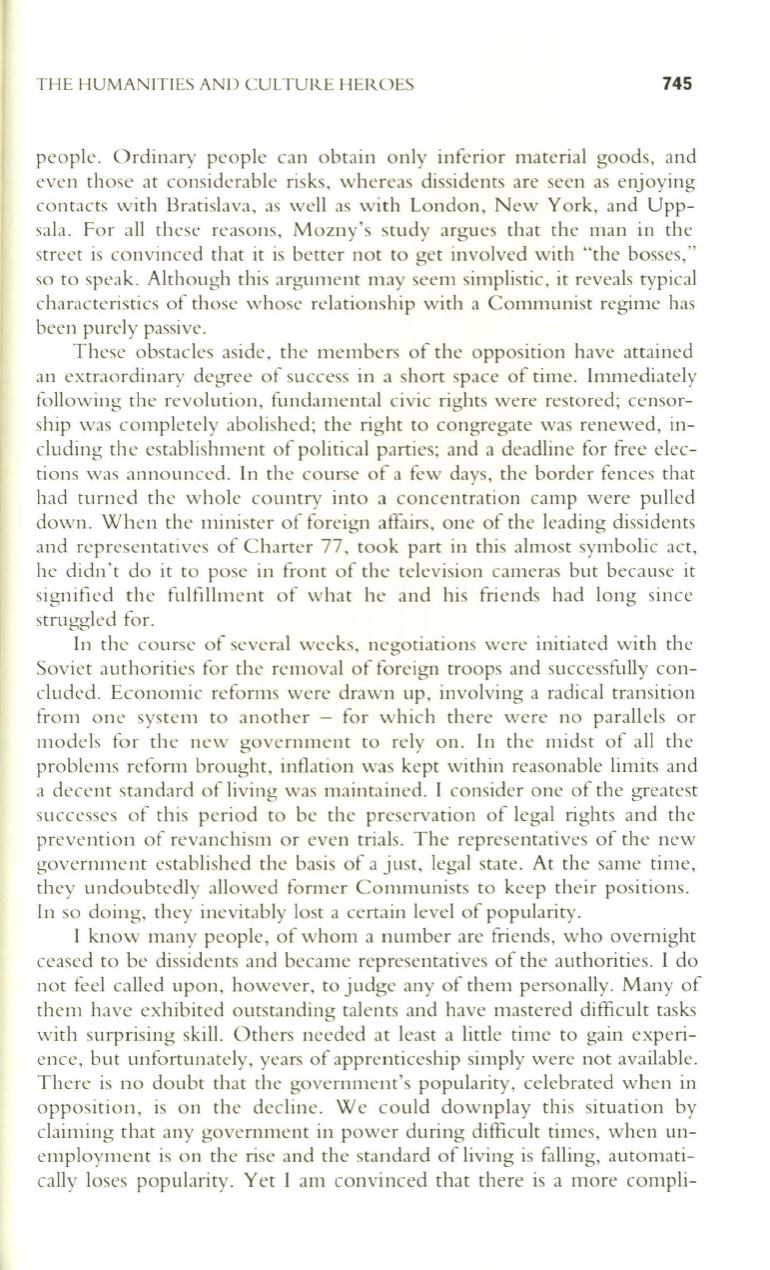
THE HUMANITIES ANI) CULTUIU HEROES
745
people. Ordinary people can obtain only inferior material goods, and
even those at considerable risks, whereas dissidents are seen as enjoying
contacts with Bratislava, as well as with London, New York, and Upp–
sala. For all these reasons, Mozny's study argues that the man in the
street is convinced that it is better not to get involved with "the bosses,"
so to speak. Although this argument may seem simplistic, it reveals typical
characteristics of those whose relationship with a Communist regime has
been purely passive.
These obstacles aside, the members of the opposition have attained
an extraordinary degree of success in a short space of time. Immediately
following the revolution, fundamental civic rights were restored; censor–
ship was completely abolished; the right to congregate was renewed, in–
cluding the establishment of political parties; and a deadline for free elec–
tions was announced. In the course of a few days, the border fences that
had turned the whole country into a concentration camp were pulled
down. When the minister of foreign affairs, one of the leading dissidents
and representatives of Charter 77, took part in this almost symbolic act,
he didn't do it to pose in front of the television cameras but because it
signified the fulfillment of what he and his friends had long since
strucmled for.
bb
In the course of several weeks, negotiations were initiated with the
Soviet authorities for the removal of foreign troops and successfully con–
cluded. Economic reforms were drawn up, involving a radical transition
from one system to another - for which there were no parallels or
models for the new government to rely on. In the midst of all the
problems reform brought, inflation was kept within reasonable limits and
a decent standard of living was maintained. I consider one of the greatest
successes of this period to be the preservation of legal rights and the
prevention of revanchism or even trials. The representatives of the new
government established the basis of a just, legal state. At the same time,
they undoubtedly allowed former Communists to keep their positions.
In so doing, they inevitably lost a certain level of popularity.
I know many people, of whom a number are friends, who overnight
ceased to be dissidents and became representatives of the authorities. I do
not feel called upon, however, to judge any of them personally. Many of
them have exhibited outstanding talents and have mastered difficult tasks
with surprising skill. Others needed at least a little time to gain experi–
ence, but unfortunately, years of apprenticeship simply were not available.
There is no doubt that the government's popularity, celebrated when in
opposition , is on the decline. We could downplay this situation by
claiming that any government in power during difficult times, when un–
employment is on the rise and the standard of living is falling, automati–
cally loses popularity. Yet I am convinced that there is a more compli-


